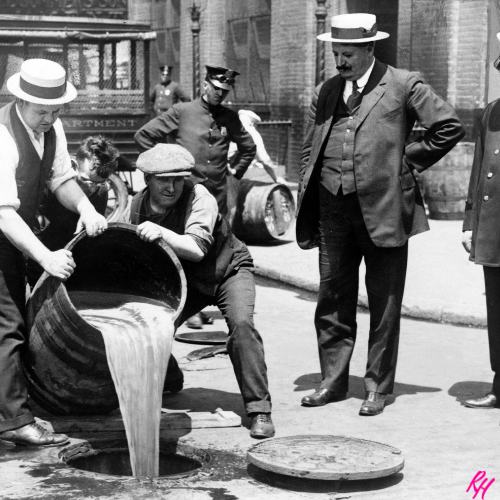War That’s Already Lost
In 1971, President Nixon declared a “War on Drugs.” Fifty years and over $1 trillion later, drug use rates are virtually unchanged, overdose deaths have skyrocketed, and we’ve incarcerated millions of people for a public health issue.
Today, we’re fighting another war that’s equally doomed to fail: the War on Stress.
As a stress physiologist who’s watched the wellness industry grow into a $1.5 trillion behemoth, I’m seeing the exact same patterns that made the drug war such a catastrophic failure. We’ve declared stress the enemy, launched an elimination campaign, and are shocked when the problem gets worse instead of better.
The parallels are striking—and terrifying.
“Just Say No” to Essential Biology
Remember the “Just Say No” anti-drug campaign? Nancy Reagan’s well-intentioned but simplistic message assumed that drug use was purely a matter of willpower and moral choice. Ignore the complex factors driving addiction, tell people to “just say no,” and problem solved.
The corporate wellness world has adopted the exact same approach with stress: “Just say no to overwhelm.” “Just breathe and calm down.” “Just find work-life balance.”
But here’s the problem with telling people to “just say no” to stress: it’s like telling them to “just say no” to oxygen.
Yes, oxygen is literally toxic. It creates free radicals that damage our DNA, proteins, and cellular structures. The process of oxidation is what causes us to age and die. But you’d think someone was insane if they launched a “War on Oxygen” campaign, right?
That’s essentially what we’ve done with stress.
The Prohibition Model Applied to Human Biology
The War on Drugs was built on a fundamental misunderstanding: that substances themselves are the problem, rather than people’s relationship with those substances. The solution was prohibition—eliminate access, criminalize use, and shame people into compliance.
The War on Stress follows the identical playbook. Stress is inherently bad. The solution is elimination—remove stressors, avoid challenges, and shame people who can’t “manage” their stress properly.
Both approaches ignore a crucial reality: when you declare war on something that serves an essential biological function, you don’t eliminate it—you drive it underground and make it more dangerous.

The Data Don’t Lie: Both Wars Are Failing
Let’s look at the numbers. After five decades of the War on Drugs:
- Drug use rates have remained virtually flat
- Overdose deaths increased 500% between 1999 and 2019
- We spend $80 billion annually with no measurable impact on supply or demand
- The approach has created more problems than it solved
Now compare this to our War on Stress:
- Despite the wellness industry growing 12.8% annually, stress-related disorders are at all-time highs
- Anxiety and depression rates have increased 25% globally since 2020
- 76% of employees report feeling burned out despite unprecedented corporate wellness spending
- Studies show that 90% of workplace stress management programs have zero positive effect
Both wars share the same fundamental flaw: they’re fighting against basic human nature.
The Underground Market for Stress Relief
When you wage war on something people naturally experience, you create a black market. During Prohibition, this meant speakeasies and moonshine. In our War on Stress, it means people are self-medicating in increasingly dangerous ways.
Look at the data:
- Prescription anxiety medication use has increased 34% since 2008
- Alcohol consumption has increased as people used it for “stress relief”
- Cannabis use for anxiety has skyrocketed
- Even caffeine consumption has reached record highs as people seek any edge to cope
We’ve created an underground economy of stress management because the official solutions don’t work.
The Moral Panic Around Normal Human Responses
Both wars created moral panics around normal human experiences. The War on Drugs demonized people for seeking altered states of consciousness—something humans have done for thousands of years across every culture. The War on Stress demonizes people for having normal physiological responses to challenging circumstances.
I see this constantly in corporate wellness programs. Employees are made to feel defective for experiencing stress during high-pressure projects, anxious during uncertain times, or overwhelmed when managing competing priorities. These are normal, healthy responses that indicate someone cares about their work and wants to perform well.
But just like drug users were labeled as “addicts” and “criminals,” stressed employees are labeled as “burned out,” “unproductive,” or “unable to handle the pressure.”
The Abstinence-Only Model of Stress Management
The War on Drugs promoted abstinence-only drug education, which we now know is completely ineffective. Kids were told to never try drugs, given no practical information about risks or harm reduction, and then blamed when they inevitably encountered substances in the real world.
Corporate stress management follows the identical model. Employees are told to avoid stress, given no practical tools for working with pressure when it inevitably appears, and then blamed for “poor stress management skills” when they struggle.
What we need is the equivalent of harm reduction for stress—teaching people how to work with stress safely and effectively rather than pretending they can avoid it entirely.
What Actually Works: The Portugal Model
In 2001, Portugal took a radically different approach to drugs. Instead of criminalization and elimination, they decriminalized use and focused on harm reduction, treatment, and addressing root causes. The results were remarkable:
- Drug-related deaths decreased by 80%
- HIV infections among drug users dropped 95%
- Drug-related crime plummeted
- Overall drug use didn’t increase—it actually declined in some categories
We need the same approach with stress. Instead of declaring war on it, what if we:
- Normalized stress as a natural human response
- Taught people how to use stress energy safely and effectively
- Addressed the root causes of toxic stress (lack of autonomy, meaningless work, social isolation)
- Focused on stress transformation rather than stress elimination
The Real Enemy Isn’t Stress
Just as the real enemy wasn’t drugs but the conditions that made drugs destructive (lack of education, criminalization, social isolation), the real enemy isn’t stress but the conditions that make stress toxic:
- Meaningless work that doesn’t connect to larger purpose
- Lack of autonomy or control over one’s environment
- Social isolation during challenging periods
- Chronic stress without recovery periods
- The shame and stigma around natural human responses
Your Organization’s Choice
Every organization today faces the same choice Portugal faced in 2001: continue the war that isn’t working, or try a fundamentally different approach.
You can keep spending money on stress elimination programs that fail 90% of the time, or you can start teaching people to transform their stress into competitive advantage.
You can keep treating stressed employees like they’re broken, or you can recognize that stress often signals engagement and caring.
You can keep fighting human nature, or you can work with it.
The End of the War
The War on Drugs is slowly ending as states legalize marijuana, cities decriminalize various substances, and treatment replaces incarceration. We’re finally recognizing that prohibition doesn’t work when you’re fighting basic human impulses.
It’s time to end the War on Stress for the same reasons. You cannot eliminate something that’s essential to human thriving. You can only teach people to work with it more skillfully.
The data are clear: stress transformation works where stress elimination fails. Organizations that embrace this shift will have a massive competitive advantage over those still fighting yesterday’s war.
The question is: are you ready to declare peace with stress and start using it as the powerful resource it was meant to be?

![Fearless blog FEAR[less] blog](https://rebeccaheiss.com/wp-content/uploads/2024/05/Fearless-blog.png)


